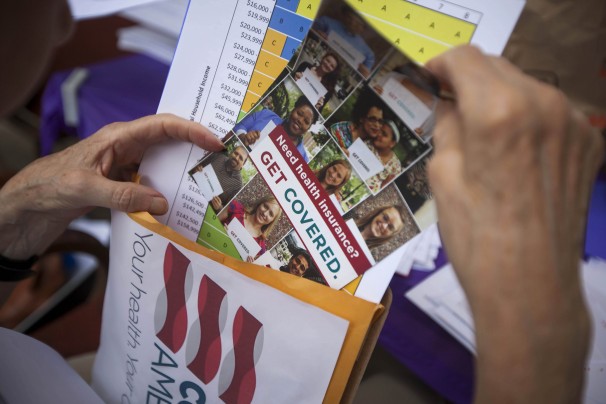Headlines I Wish I Hadn’t Seen
ObamaCare’s individual mandate penalty also delayed for policies bought off-exchange.
 In 2009, the federal government budgeted $30 billion to incentivize doctors and hospitals to install electronic health records and use them “meaningfully”. Here are the results from Boston’s Brigham & Women’s Hospital — one of the leading academic medical centers in the country:
In 2009, the federal government budgeted $30 billion to incentivize doctors and hospitals to install electronic health records and use them “meaningfully”. Here are the results from Boston’s Brigham & Women’s Hospital — one of the leading academic medical centers in the country:
Of 858 physicians, 540 (63%) were “meaningful users”. Meaningful use was associated with marginally better quality for 2 measures, worse quality for 2 measures, and not associated with better or worse quality for 3 measures.
Meaningful use of electronic health records was correlated with better control of cholesterol in patients with diabetes and of blood pressure in hypertensive patients. The meaningful-use group provided worse treatment of asthma and depression than the non-MU group did.
HT: Ken Terry, Medscape.
 A child can have three genetic parents (and two potential paternity suits?).
A child can have three genetic parents (and two potential paternity suits?).
Cuban doctors get a raise — to $67 a month…
Smokers’ lungs are ok for transplantation.
Federal government spending on electronic health records now at $24 billion. (And doctors hate them).
The 2009 HITECH Act authorized billions of taxpayers’ dollars be spent to pay hospitals and physicians “incentives” to adopt EHRs. The Congressional Budget Office estimates that the total tab will be $30 billion from 2011 through 2019. The Government Accountability Office has just reported on the results so far.
Not surprisingly, with so much money being spent, there was a lot of uptake: 45 percent of eligible hospitals had EHRs in 2011, versus 64 percent in 2012. For physicians and allied professionals, the share went up from 21 percent to 48 percent. However, the high net adoption rate disguises significant drop outs:
Specifically, within the 36 states that had completed their determinations of which providers would receive incentive payments for the 2012 Medicaid EHR program year, 61 percent of professionals and 36 percent of hospitals that participated in the Medicaid EHR program in 2011 did not continue in 2012. Sixteen percent of professionals and 10 percent of hospitals participating in the Medicare EHR program in 2011 did not continue to participate in 2012. (p. 23)
Despit e the government’s bribe of nearly $27 billion to digitize patient records, nearly 70% of physicians say electronic health record (EHR) systems have not been worth it.
e the government’s bribe of nearly $27 billion to digitize patient records, nearly 70% of physicians say electronic health record (EHR) systems have not been worth it.
Moocs (massively open online classes) are not as easy to offer as you might think.
T he NSA collects 200 million text messages a day.
he NSA collects 200 million text messages a day.
Electronic medical records: They don’t save money and they don’t improve quality, but they do allow hospitals to bill more. HT: Jason Shafrin.
Judge rewrites ObamaCare law to allow people to get tax subsidies in the federally run exchanges. See Background posted by Michael Cannon.
The White House was warned in advance by major insurers and others that the exchanges were not ready.
Once you finally make it into HealthCare.gov, it’s hard to get out.
 Turkey clamps down on cleavage.
Turkey clamps down on cleavage.
Are the ObamaCare exchanges an invitation to fraud?
RAND study: electronic medical records are stressing doctors out. (gated)
White House and IRS exchanged confidential taxpayer information.
ObamaCare insurance: deductible for the silver plan is $2,000; for the bronze plan it’s $5,000. (Karen Davis must be in mourning.)
The less you know, the easier it is to solve this puzzle.
Personalized medicine comes to psychiatry.
60% of Massachusetts doctors will not meet state electronic record mandate.
Denmark’s fat tax harms the economy and produces little change in behavior.